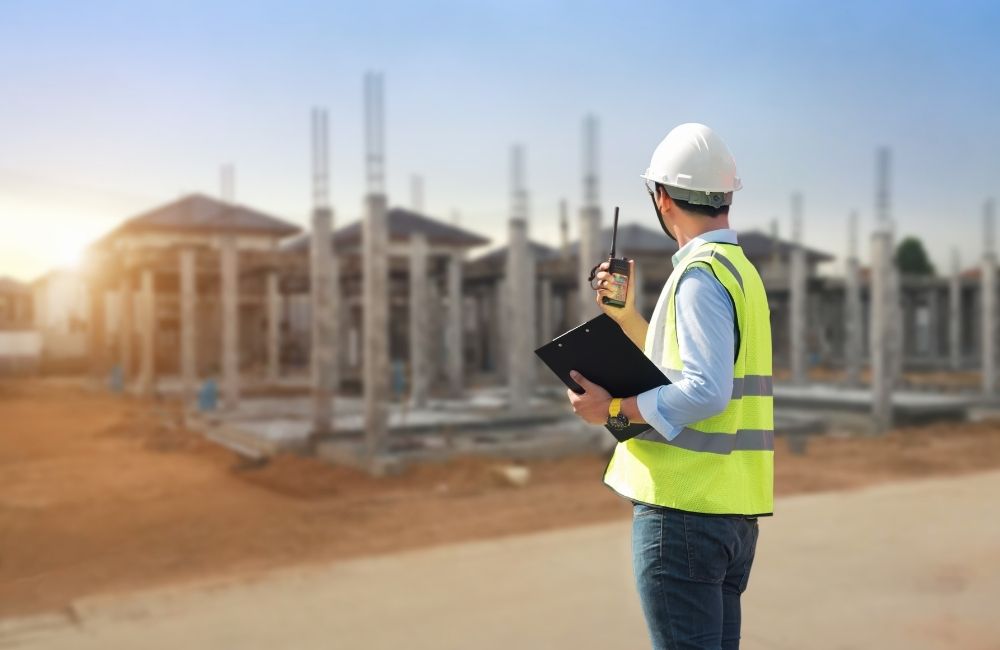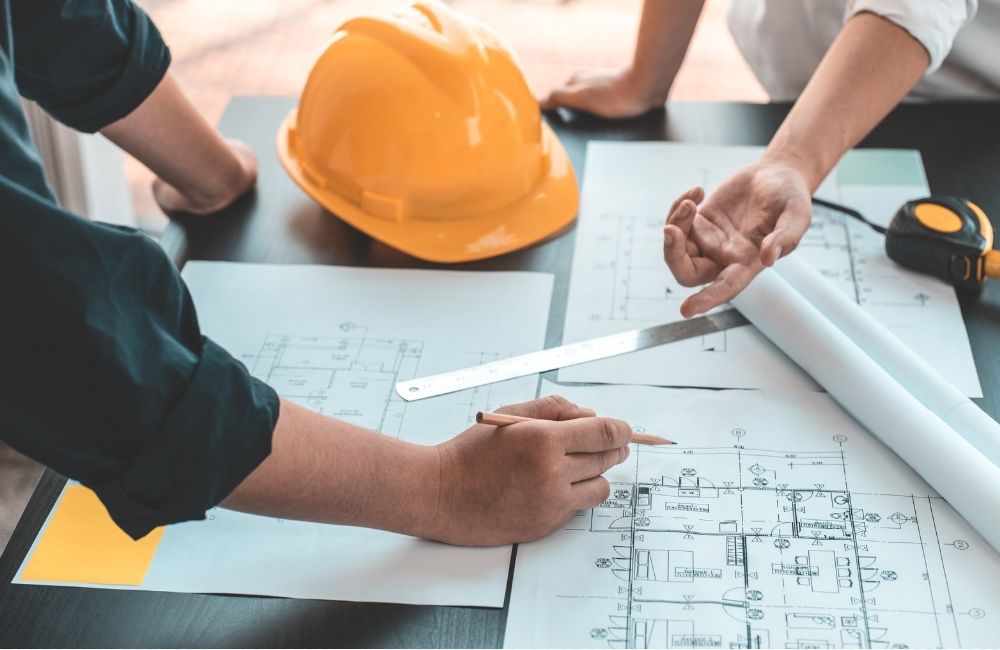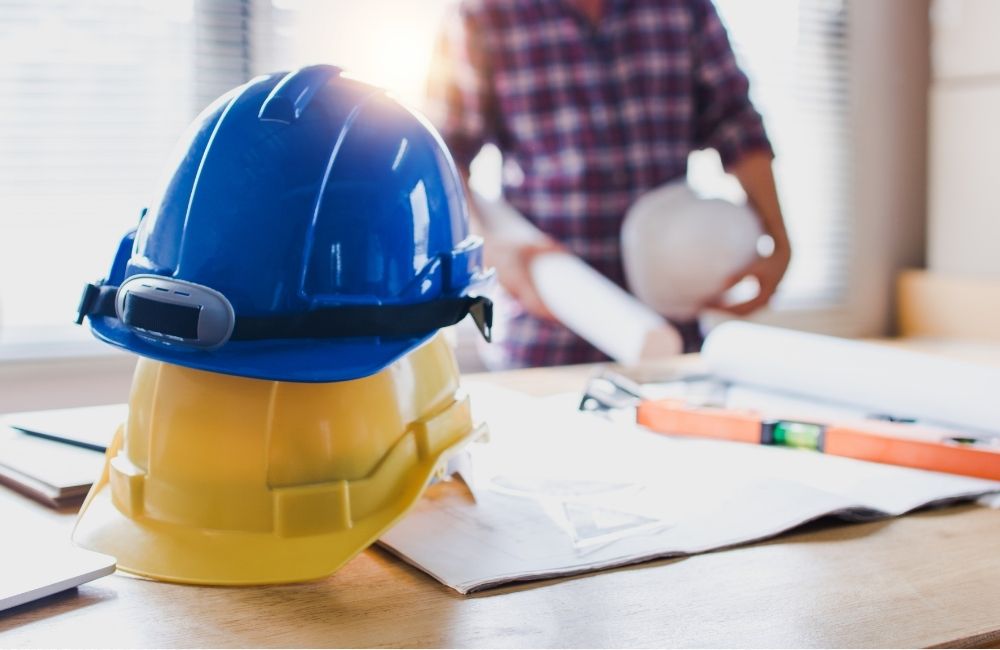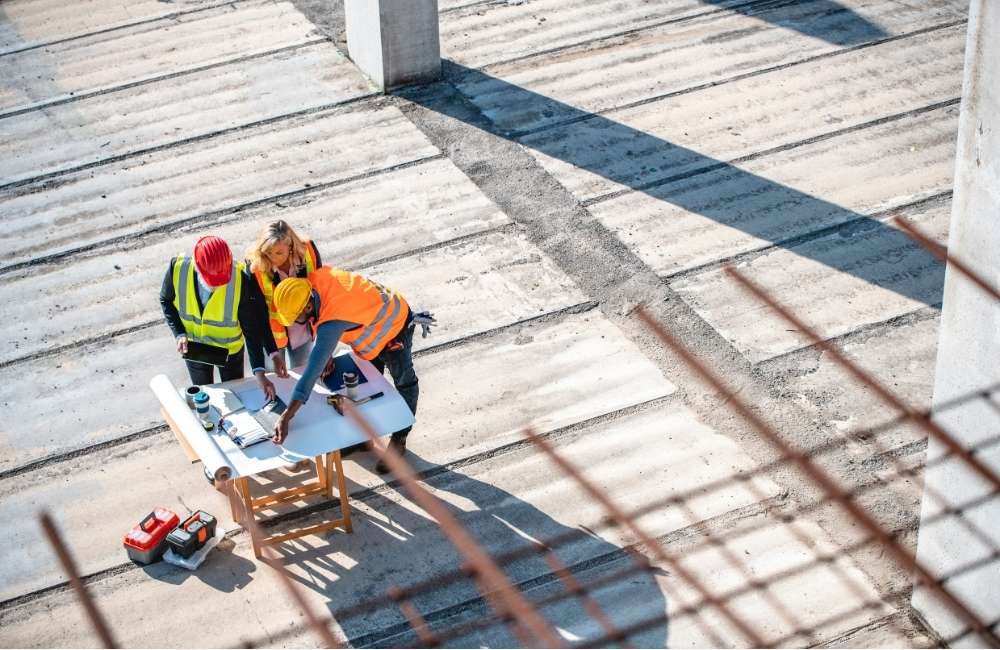According to Deloitte, Artificial Intelligence (AI) has become more prominent in the business sector in the last five years. Investing in AI can bring advantages at different project stages, including 1) planning and securing funds, 2) construction and procurement, 3) managing and maintaining the project, and 4) evolving or upgrading the business approach.
The global construction market was expected to reach about $10.5 trillion and grow 4.2% annually from 2018 to 2023. This growth is driven by more residential and infrastructure projects fueled by urbanization and population growth. A significant trend shaping this industry? The increasing integration of AI.
As AI continues to play a pivotal role in the construction sector, its significance is set to grow further. With easier market access and rapid advancements in AI and machine learning, explore the transformative impact of AI in construction and discover its top ten benefits.
How is AI Used in Construction?
AI, particularly machine learning, revolutionizes the construction industry by optimizing processes from planning to project management. It enables proactive monitoring of construction projects, analyzing factors like material volume, machine operation times, weather conditions, and historical data for risk assessment. This transformative change results in faster, safer, and more cost-effective processes, enhancing safety and efficiency on construction sites.
Integration of robotics further accelerates construction work. It is becoming increasingly essential for companies in this sector to adopt AI technologies in order to maintain a competitive edge. Europe, in particular, is at the forefront of embracing AI in construction, contributing to the growth of the global market. The industry is still in the early stages of utilizing AI, so early adopters stand to gain a substantial competitive advantage.
Benefits of AI in Construction
1. Prevents Cost Overruns
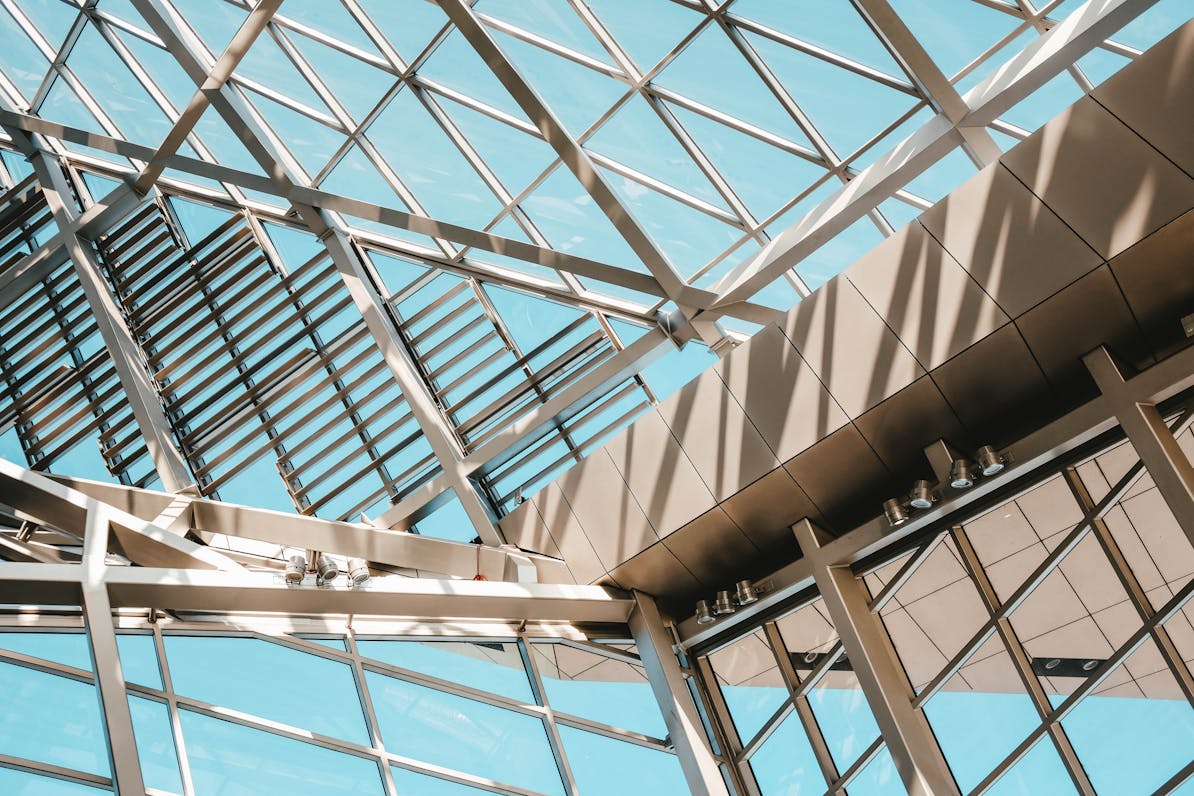
Even with a great team, big projects often spend more money than planned. Artificial Neural Networks, a technique in artificial intelligence that trains machines to handle data in a manner modeled after the human brain, can help predict if a project will go over budget by looking at the size of the project, the kind of contract, and how efficient the managers are. They use past project data to better guess when new projects will finish. AI lets workers learn topics online to start working on projects faster, which makes the whole project move quickly.
2. Better Design of Buildings Through Generative Design
The construction industry is increasingly adopting an AI-powered 3D design process for planning and executing building projects. This advanced process integrates various aspects of construction, such as architecture, engineering, and specialized plans, including electrical and plumbing systems. A major challenge in this integrative approach is ensuring that these diverse plans coalesce seamlessly without any conflicts. To address this, machine learning, a branch of AI, plays a crucial role by identifying and resolving potential issues early in the design phase.
AI-driven software is instrumental in this process, as it can experiment with multiple design options, analyzing each to determine the most effective solution that satisfies all requirements. This capability streamlines the design process and enhances the overall quality and efficiency of construction projects.
3. Risk Mitigation
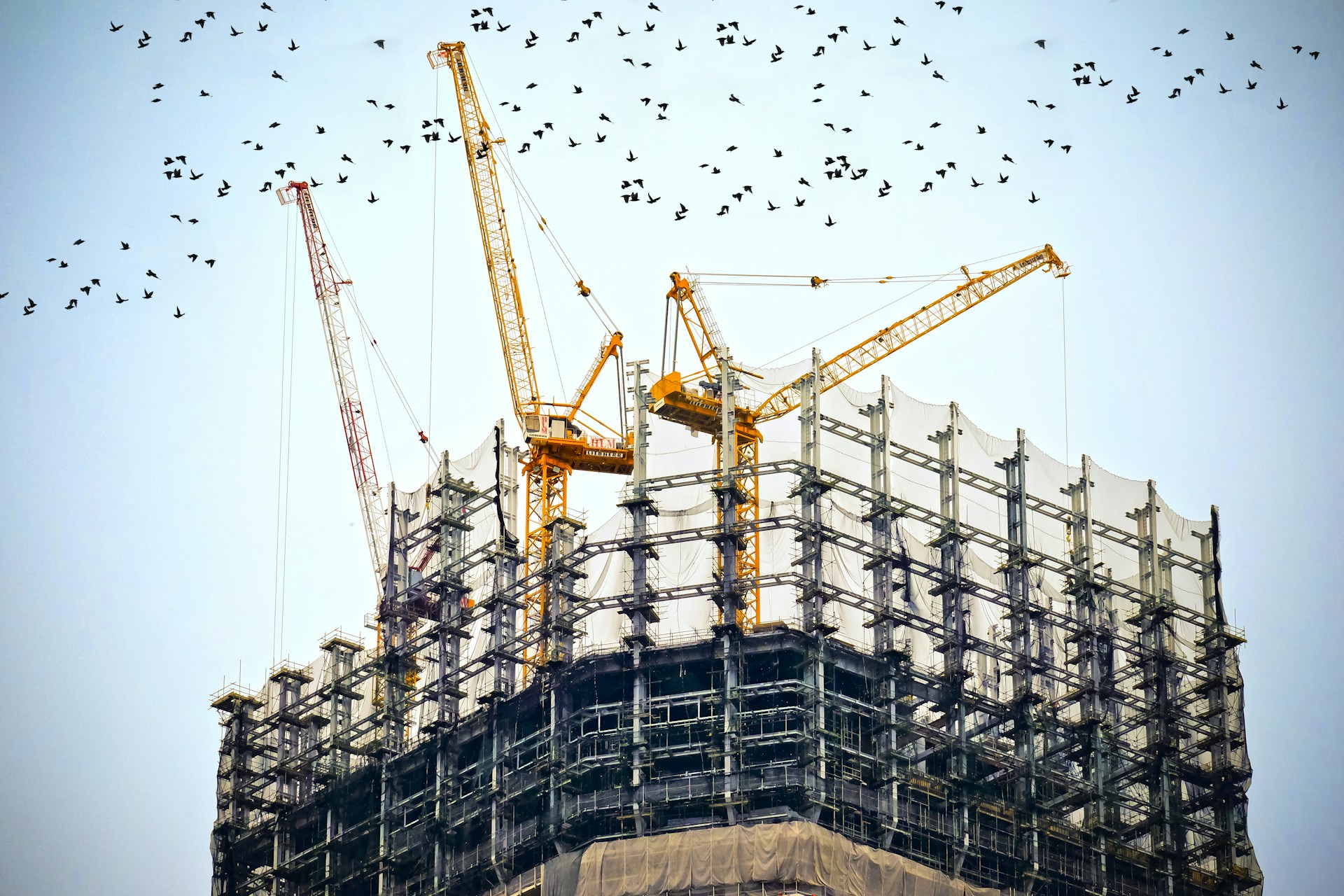
In construction, every project has risks, like problems with quality, safety, timing, and money. Larger projects can be riskier due to more subcontractors working on several jobs simultaneously. Contractors use AI and machine learning to spot and sort out these risks, and help decide which issues are more urgent. It also rates subcontractors by risk level so managers know which teams need more attention to lower the chances of problems.
4. Project Planning
Planning big construction projects is tough, and few people can handle it well. If a problem pops up, changing the order of tasks or dealing with delays can cause significant issues. If planners don't consider the possible risks, the project's success and monetary potential can be hurt. Good planning breaks big projects into smaller tasks, making managing and planning realistically easier. As projects get bigger, using AI for planning and scheduling is becoming more critical to handle the complexity.
5. More Productive Job Sites
Some companies now use AI-powered self-driving machines for tasks like pouring concrete and demolition. A human will provide instructions to machines like autonomous bulldozers, which can complete digging and leveling the ground to get a site ready. The use of AI speeds up the construction process, and can allow project managers to use cameras and facial recognition to check how well workers are doing their jobs.
6. Construction Safety

Construction workers are exposed to more hazards on the job than those in many other professions, facing key risks such as falls, being struck by objects, electrocution, and incidents involving getting caught in or between equipment. To address these dangers, a Boston-based company has harnessed the power of AI to enhance safety protocols on construction sites. They have developed a program that utilizes AI by analyzing site photographs, and identifying potential safety issues such as workers not wearing the necessary safety gear. This innovative use of AI doesn't just spot current risks but also predicts future safety concerns.
7. AI Will Address Labor Shortages
Construction companies are starting to use AI and data science because of worker shortages and to work more efficiently. A report in 2017 found that using data in real-time could make construction work up to 50% more productive. AI helps plan how to employ both workers and machines better. Robots at job sites can quickly show managers if there are enough workers and machines to finish on time or if additional help is needed. Robots like "Spot the Dog" can check job sites every night, helping big companies do more work, especially in locations where it is hard to find skilled workers.
8. Off-site Construction
AI helps in off-site construction by improving planning and efficiency. It can predict the best way to build project parts before being brought to the site. This saves time and reduces mistakes when the pieces are put together on-site.
9. AI and Big Data in Construction
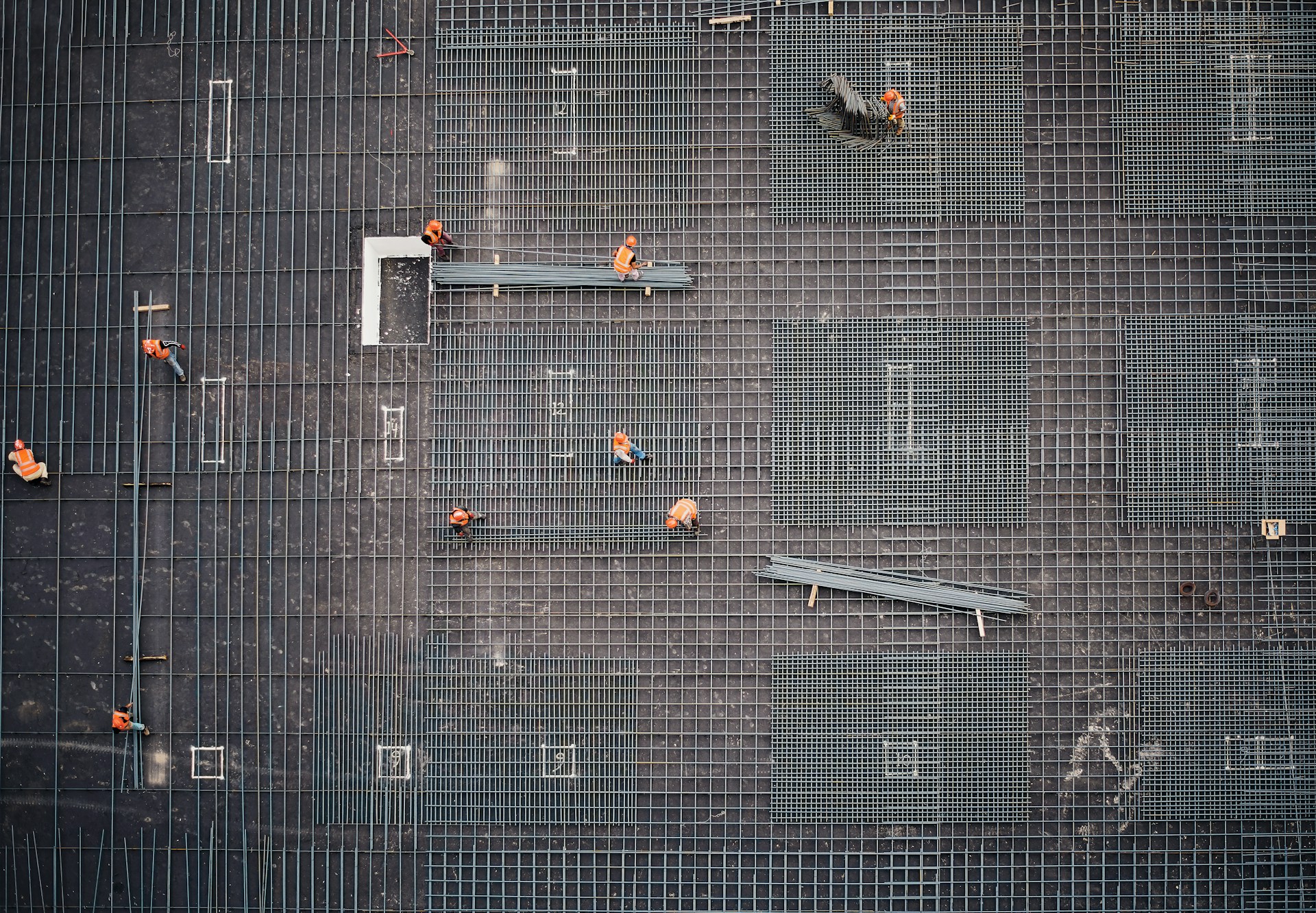
Nowadays, a lot of data is updated daily, and AI systems use this data to keep getting better. Construction sites are now sources of data for AI. Images from phones, drone videos, security sensors, and building plans are all used to gather information. This gives construction experts and customers a chance to learn from the data. AI and machine learning assists in making sense of all of this information.
10. AI for Post-Construction
Building managers can keep using AI even after a building is finished. AI uses sensors, drones, and other tech information to understand how a building or bridge works. It can find out how the project looks post-construction and spot any problems. AI aids in the ongoing maintenance and monitoring of buildings by predicting when and where repairs might be needed, which can prevent costly breakdowns. It can analyze energy usage patterns to suggest ways to make the building more energy-efficient. In addition to this, AI can enhance security systems using advanced algorithms to detect unusual activities or potential threats in real-time.
How Does AI Look in Construction in 2024?
By 2024, construction spending on AI will likely exceed $1 billion. Using AI for designing can cut building costs by up to 20% and halve the waste of materials. Robots and automated tools in construction are set to grow by more than 25% each year. This growth will help solve the problem of needing more workers. It will also make construction work faster and more efficient.
Although there are concerns about AI causing significant job losses, it's unlikely to replace human workers. Instead, AI will transform business practices in the construction industry. It will minimize costly mistakes, lower the rate of workplace injuries, and enhance the overall efficiency of construction operations.
Elevate Your Construction Projects with Future-Ready Innovations from Claris Design•Build!
At Claris Design•Build, we are constantly exploring cutting-edge advancements in construction. We are poised to embrace the exciting possibilities of emerging AI technologies!
As the construction industry evolves, Claris envisions harnessing the power of AI to streamline processes, reduce costs, and enhance safety measures for our clients. Join us in this forward-thinking journey, where we strive to stay ahead of the curve and incorporate future-ready solutions. Elevate your construction experience with Claris Design•Build – where excellence meets innovation.
Call or visit our website, and let's embark on a transformative construction adventure together!




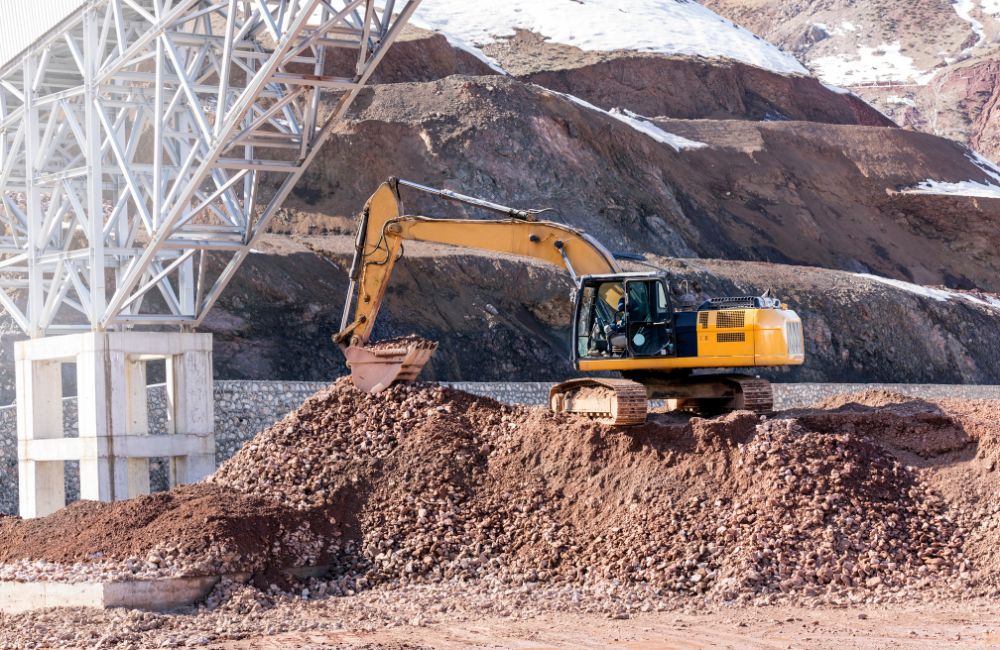
![[2025 UPDATE] Commercial Construction Cost per Square Foot in the US](https://www.clarisdesignbuild.com/wp-content/uploads/2025/04/2025-UPDATE-Commercial-Construction-Cost-per-Square-Foot-in-the-US-3.jpg)
